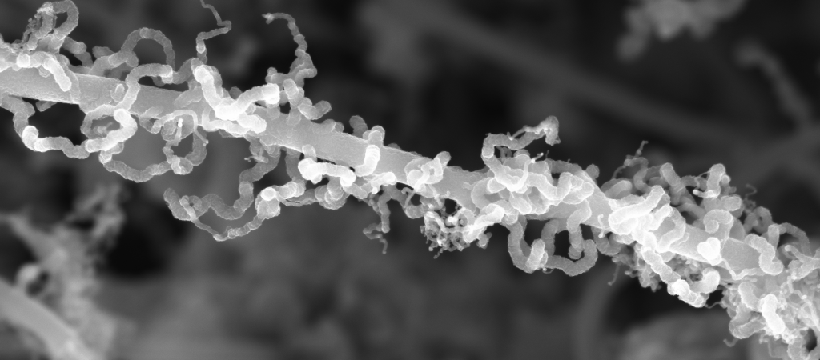
Nanomaterial synthesis and application
Microfluidic devices are optimal systems for performing heterogeneous catalytic reactions due to their high surface to volume ratio. Among different micro- and nano-materials, carbon nanostructures have received considerable attention in microfluidic application, considering the high specific surface and unique physical properties.
The carbon nanofibers with length up to 50 micrometers and approximately 100 nanometers in diameter are prepared using the CVD (chemical vapor deposition) of acetylene on the alumina plates with a thin layer of iron catalyst at temperatures above 1073 K. After the CNF support preparation the catalytic iron nanoparticles are deposited on the carbon nanofibers based support using the ferrocene precursor, a volatile organometallic compound which decomposes to iron and carbon at temperatures above 733 K.
Our research work includes implementation of carbon nanotubes based catalytic support for intensification of slow heterogeneous reactions, which are non-efficient and non-economical when performed on conventional catalytic supports. The carbon nanotubes and catalytic nanoparticles are prepared on alumina and quartz substrates using the chemical vapour deposition technique. It was found, that the efficiency of catalyst is enhanced at least twice when carbon nanotubes based support is used.
